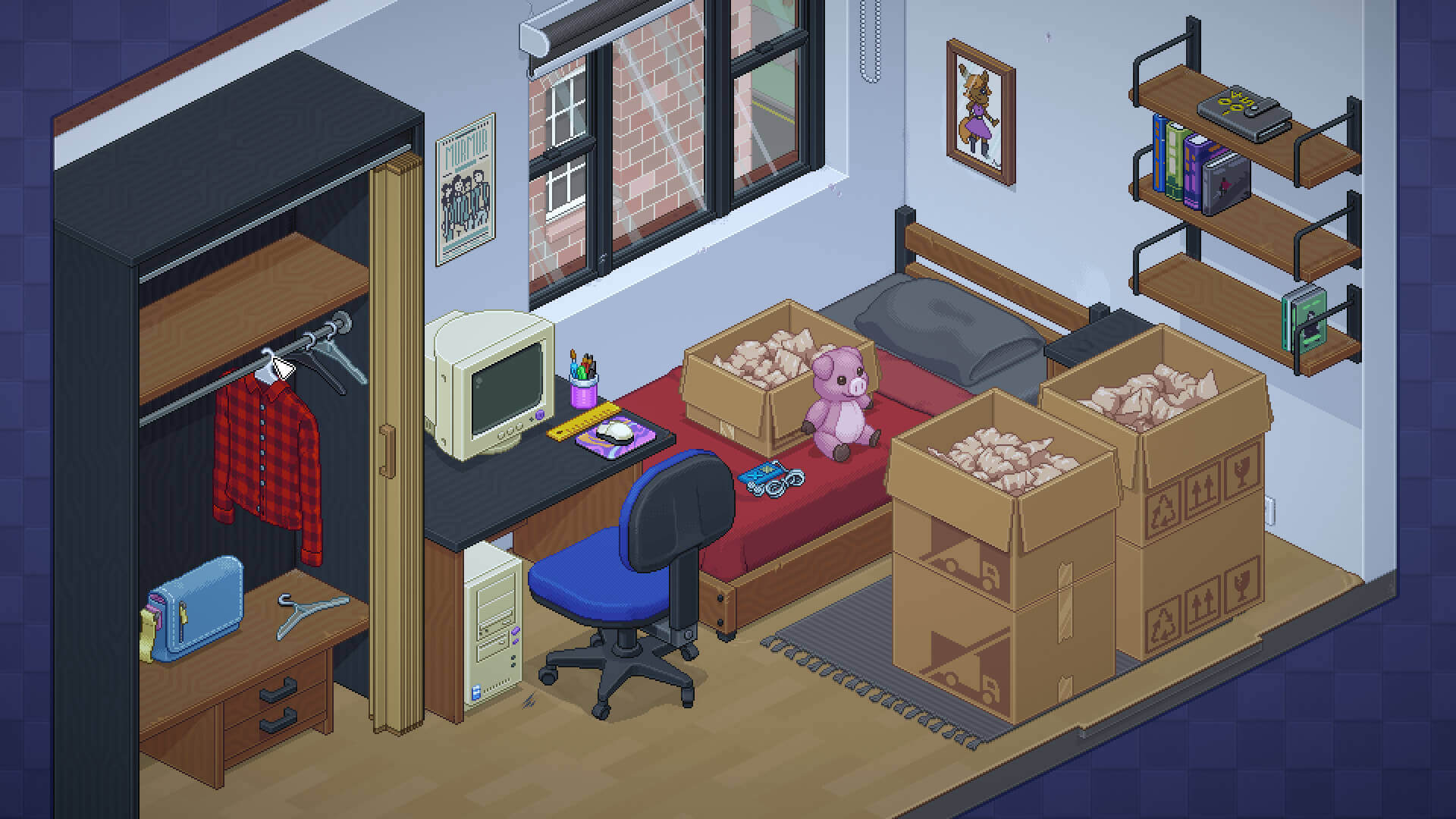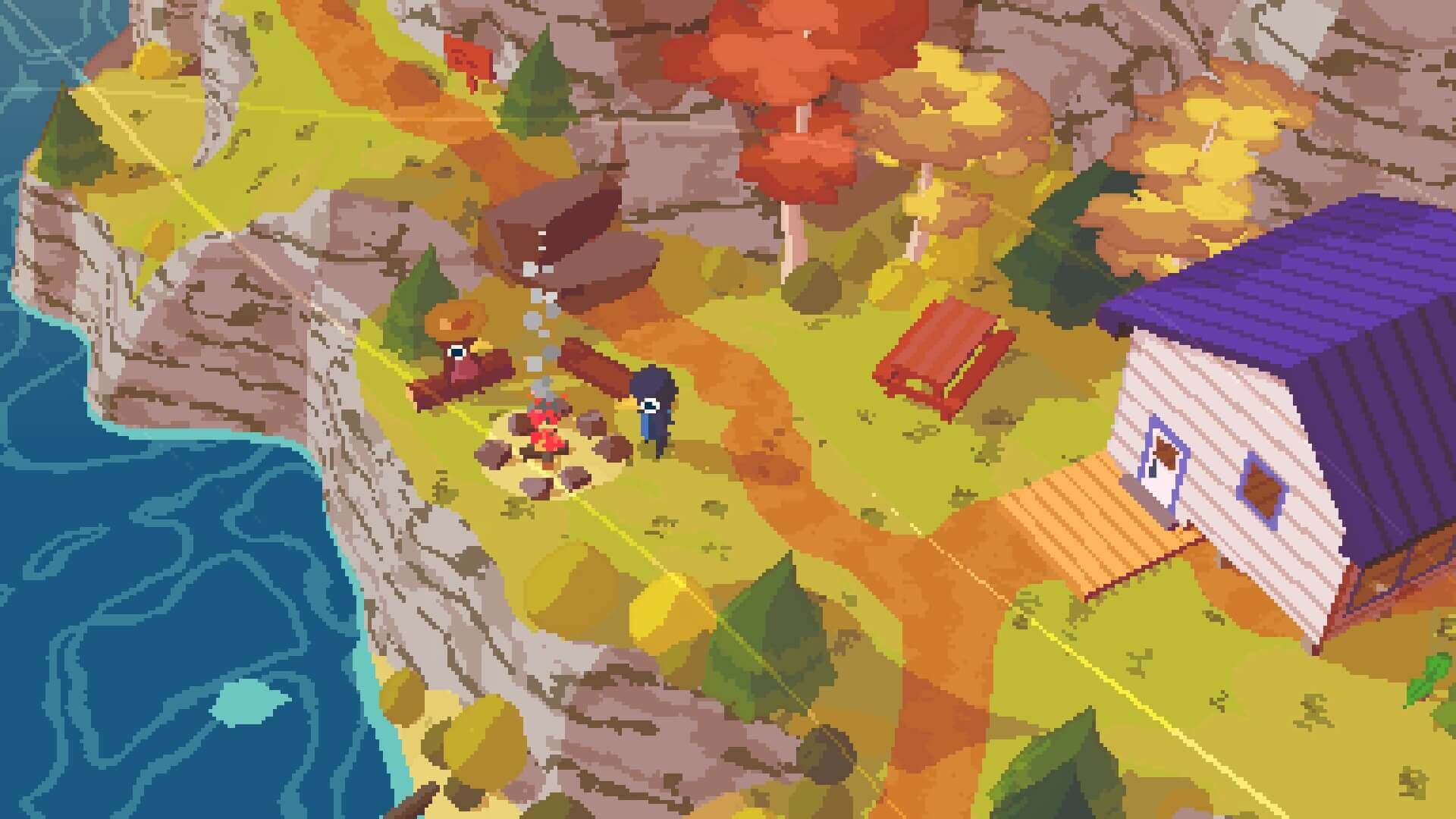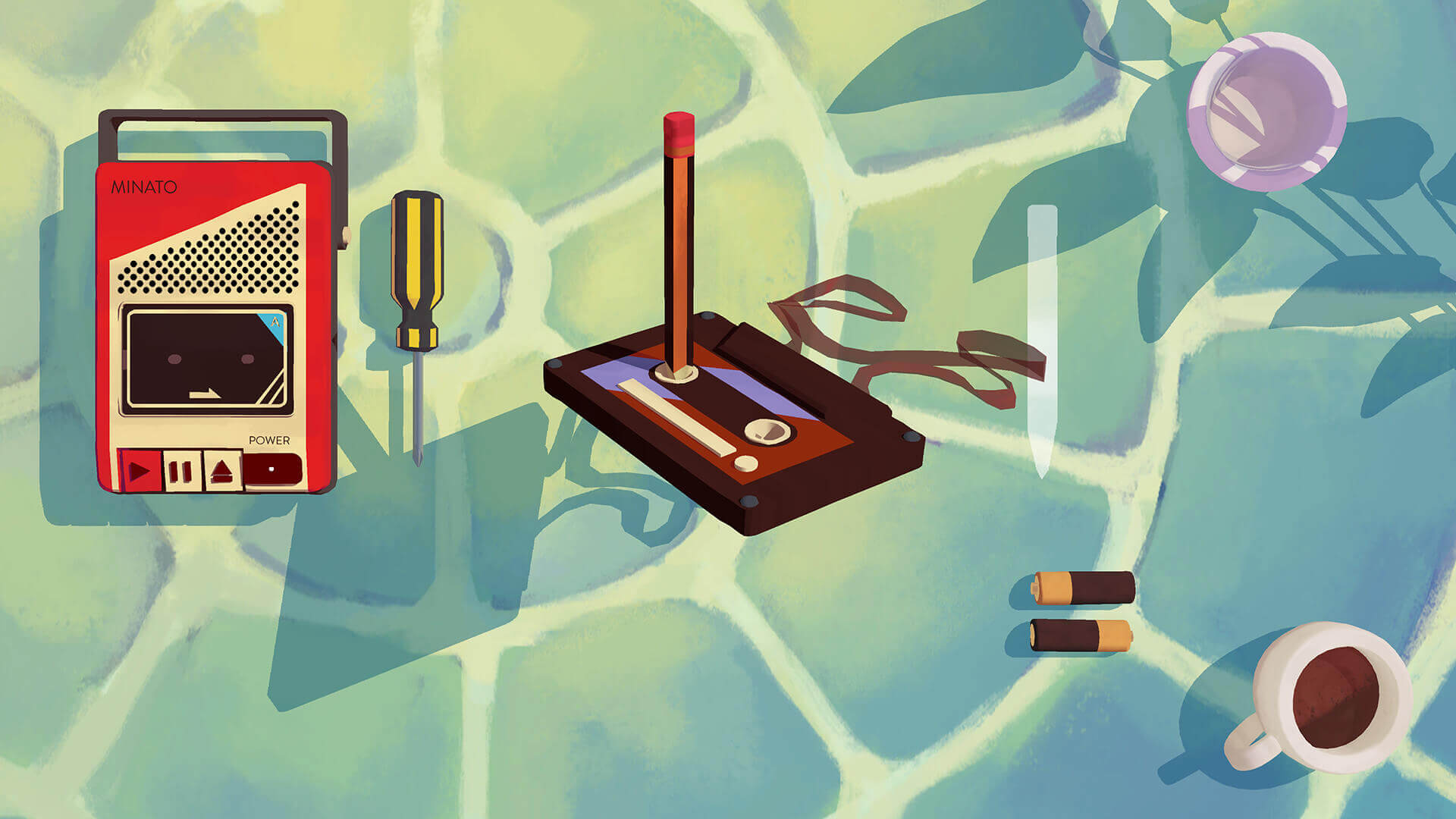Not every game story needs to be about “saving the world”
Sometimes, I just want a personal and sincere little adventure
Without falling into too many generalisms, it can be said that many stories told in video games always have as their main figure a hero character. They are about to live an adventure to solve a problem that puts a lot at risk, such as the death of someone important or saving the world of a great catastrophe. Trials, challenges, losses and discoveries are part not only of game plots, but of many, many incredible stories in media, which have spanned generations and are still told to this day.
Which isn't necessarily a problem, right? The fact that Mario is going to save the princess for the 1000th time doesn't take away from the fact that this is going to be the beginning of a phenomenal game. Just because half of the medieval RPGs out there consist of a standard Dungeons & Dragons group looking for seven magical orbs to save the world doesn't mean that good stories and good games can't emerge in this context.
Surviving these last few months in the real world has already been quite a challenge, considering all the crises that Brazil is going through simultaneously. It's no surprise that video games were one of the escape valves that I used to get through the difficult days. As much as I like being a hero by pushing half a dozen buttons, I started to realize that I was becoming interested in things that just... didn't do that? I don't know if it was the anxiety and fear of these months or something else, but there were days when I just didn't want to save the world.
I know that several games can bring this feeling: abstract puzzle games like Tetris can be a great and calm pastime, and sandboxes like Minecraft or Terraria allow you to build your own path in that world. But that's not exactly what I want to talk about: I'm here to talk about simple stories, without many promises, but which in difficult times warmed my heart and I definitely want to see more of that in the future. Because I think I'll need it (and maybe more people will need it too).
A story about changes
The game that inspired me to write this text was Unpacking, released this year by Australian studio Witch Beam and published by Humble Games. I remember learning about this game through some GIF in a random tweet and its premise couldn't be more peculiar: a puzzle game about literally moving: taking things out of boxes and putting them in their rightful place when moving houses. I like strange and different games, I knew I would want to try it when it came out.
The puzzle itself was really fun, trying to fit everything into its place was very interesting. At least until the part where he made me decide whether a random fabric was a washcloth, a dishtowel, or a pillowcase. But anyway, playing Unpacking was a pleasant experience in itself.

I just didn't expect how completely invested I would be in the game's story. In fact, I didn't even expect the game to actually have a story! I could have sworn it would just be a series of rooms, with you trying to fit everything into place without anything left over.
But not! Unlike this, Unpacking tells about the same person moving houses at different moments in their life. Every new house, every new object you take out of a box tells a part of that person's story. I don't want to give spoilers about what happens, but if you're going to (re)play, I invite you to pay attention to them. From objects that are worn out or reused in other places, or even the houses you find and what they represent. Everything in Unpacking helps tell this story, painting this character's life in some way.
In the end, it's a short story about the changes in life that everyone goes through. Some of them bring good things, others not so much, but we correct them and move on to start the next one. For someone who is going through a process of many changes like me, I can't think of a better medium than the interactivity of a video game to tell a story in this way and I think Unpacking does a great job.
A story about discoveries
As I thought about other games that I could use as examples in this text, the first thing that came to my mind was the wonder that A Short Hike did in my life when I played it last year. Created by Adam Robinson-Yu, I ended up coming across the title during one of the free play weeks on the Epic Games Store and, after much praise from some friends, I decided to try it out on a night where I was tired, exhausted and very scared after the second month of quarantine.
I think I've had few happier experiences with video games than playing this game. The concept, as you might expect at this point, is very simple: you help the bird Claire explore a provincial park and manage to climb a mountain to get signal for her cell phone.

Before talking about the story, I need to praise how enjoyable it is to play this game. The movement, the flying, the exploration, the progression, the sidequests, the art style, the dialogue, everything in this game seems to have been made with so much care with the only goal of bringing a smile to my face. Playing A Short Hike is very good and would still be a wonderful game to play even without being as cozy as it is. But he does it and still manages to warm my heart.
Ultimately, this game is about a teenager who was pushed by her aunt to visit a mountain in a park for a week — and all she wants is to get a cell phone signal. After all, what kind of young person cares about a calm and peaceful stay on a mountain? I was once that kind of young person, I've met a lot of people who are still that kind of young person. But this game is also about her (and you) walking around the mountain, meeting people, making friends, exploring a different place and discovering new things.
Travel to a beautiful park, talk to people there, look for shells on the beach, learn to climb, fish in a calm lake: A Short Hike doesn't try to change the world, it just tells a story about discovering a new place and invites you to participate in it. I'm happy that this place is incredible, fun and did me a lot of good in a very difficult week. No wonder it made my POTY 2020.
A story about new beginnings
Another game that stood out to me these last few months was Assemble with Care, from the British team Ustwo Games. Originally an Apple Arcade exclusive and from the same creators of the mobile classic Monument Valley, this game had been on my wishlist for a long time. Not only because it's a puzzle game, but also because of the theme: you follow Maria, an antique-restorer, who arrives in a Spanish city looking for things to fix and earn a few bucks to enjoy the gastronomic festival at the weekend.
This game enchanted me in a few different ways. The first one was how fixing things in the game was fun and simple: the puzzles weren't very difficult, but they always brought new elements and were very interesting. Somehow, it was as if I could do the same things my father did when I was a child; I felt like I had the same skills as him, even if it was just for a few minutes in a video game.

But at the same time, the way this game presents its little world is also something that caught my attention: every object worth repairing is important to someone. As you get to know the people of the city and repair their objects, you will understand their problems and what those objects represent. I've always been fascinated by the stories that objects can have and how they can represent someone's (or a group's) life. Being able to somehow give these objects a new life and start a new chapter for these people was something very special.
None of the stories were really dramatic: they were just ordinary problems, faced by ordinary people. But they could be part of anyone's life, from the child who really likes their video games to the watch that has come passed through generations.
A part of me wanted this game to never end, that I could go to a new city, learn more about the lives of people and their objects. Maybe this game doesn't click with you as much compared to how much it pleased me, but a part of me wanted to be able to go around fixing things and discovering stories as simple, but as cozy as the plots of Assemble with Care.
A story about pranks
OK, I know it's going to seem a little out of tone talking about this game, but I think it's a good counter example to show that these games that I'm now a fan of don't just have to be about beautiful and intimate stories. Because I definitely also didn't save the world in Untitled Goose Game, developed by House House and published by Panic. If you've ever seen a GIF of a goose seeking to be the very incarnation of chaos, you know what game I'm talking about.

I really like thinking about the meeting where the idea for this game was discussed: “what if you could be the irritating goose on the face of the planet?”. And really, isn't that stupidly fun!? Even though the controls are a little strange and the missions can be frustrating at some point, I played this thing in co-op with my girlfriend and it was really, really fun. It was quite interesting how we would casually take turns which goose would do the game task and which one would just honk at all the humans to scare them.
I think my favorite thing about this game is the commitment to the simple, pure story they wanted to tell. You are a despicable goose who will do whatever you want to do. And that's it! At the same time, as you change people's lives, you begin to understand who they are, what the relationship is between those people and what their relationship is with the geese.
It's really good how the whole concept of the game is just an episode of an old cartoon like Woody Woodpecker or Tom & Jerry: animals destroying everything with minimal reason while we laugh a lot. It's cool how the tasks that the game gives you are not just objectives, but also serve to modify the world around you and help tell the story of those people that afternoon. And the ending, which is already mechanically very cool, also ties up the entire saga in search of absolute chaos. HONK!
The next stories?
Somehow, these may not be the most common in video games, but they are stories from our real world, emotions and moments that we all go through. In reality, I connected a lot with them because I am also going through moments of changes, discoveries, new beginnings and the search for the complete chaos of the universe.
This post was written as a way to talk more about them, to inspire more people to look for new types of plots in the games they consume. If you already like this type of game, perhaps now you have some recommendations. If you've never thought about it that way, I hope one of the games here inspires you to try something new.
As for me, I'm rooting for a better future for all of us, but these games that warm my heart won't stay away from me. While there should be plenty more out there to try, there are plenty more coming out in the future that I want to be able to keep an eye on for them — like the dreamy rhythm game Melatonin, the Indian cooking simulator Venba, and the organization puzzle A Little to the Left.
In the end, these games aren't about saving the world, but being able to experience these stories saved a little part of my world when I needed it most. I think it was worth it.